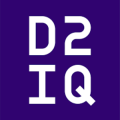D2iQ, a company that provides enterprise Kubernetes for cloud-native applications, has announced the release of D2iQ Kubernetes Platform (DKP) 2.4. The platform includes updates, new features, and expanded infrastructure support for major cloud service providers. It makes Kubernetes clusters easier to manage in hybrid, multi-cloud, and multi-cluster environments by improving security, adding more deployment options, and improving the user interface. With the release of DKP 2.4, D2iQ is making it easier for organizations to make the transition to cloud-native applications.
DKP 2.4 also includes an enhanced Insights Engine, which provides self-service troubleshooting capability and automated alerts for identifying missing best practices and deprecated API versions in cluster configurations. With the release of DKP 2.4, D2iQ continues to offer users a complete Kubernetes platform that makes it easier to deploy and manage enterprise-level apps.
"At D2iQ, our goal is to consistently improve the customer's experience running enterprise-scale Kubernetes on premises, in a public cloud, or in a hybrid environment. DKP Insights Engine is just one example of our ongoing innovation and focus on simplifying Kubernetes management to help customers succeed in their cloud-native journeys."
D2iQ CEO and cofounder, Tobi Knaup
Support for Kubernetes 1.24, Red Hat Enterprise Linux 8.6, Rook Ceph storage services, and better documentation for Konvoy Image Builder are some of the other features. In summary, the Kubernetes Platform 2.4 update offers a wealth of features and benefits that can improve the user experience when managing Kubernetes clusters in hybrid, multi-cloud, and multi-cluster environments.
About D2iQ

D2iQ is the leading provider of enterprise-grade cloud platforms, enabling businesses to embrace open-source and cloud-native innovations while delivering smarter Day 2 operations. D2iQ enables organizations to navigate and accelerate cloud-native journeys by providing enterprise-grade technologies, training, professional services, and support. D2iQ has unmatched experience driving some of the world's largest cloud deployments. D2iQ has the expertise, services, and technology to enable your success, whether you are deploying your first Kubernetes workload, optimizing your business analytics with Spark or Jupyter, or educating your developers on the benefits of cloud native. In addition to its headquarters in San Francisco, D2iQ has offices in London and Hamburg, Germany. Andreessen Horowitz, Hewlett-Packard Enterprise, Khosla Ventures, Koch Disruptive Technologies, Microsoft, and T. Rowe Price Associates, Inc. are among the investors in D2iQ.